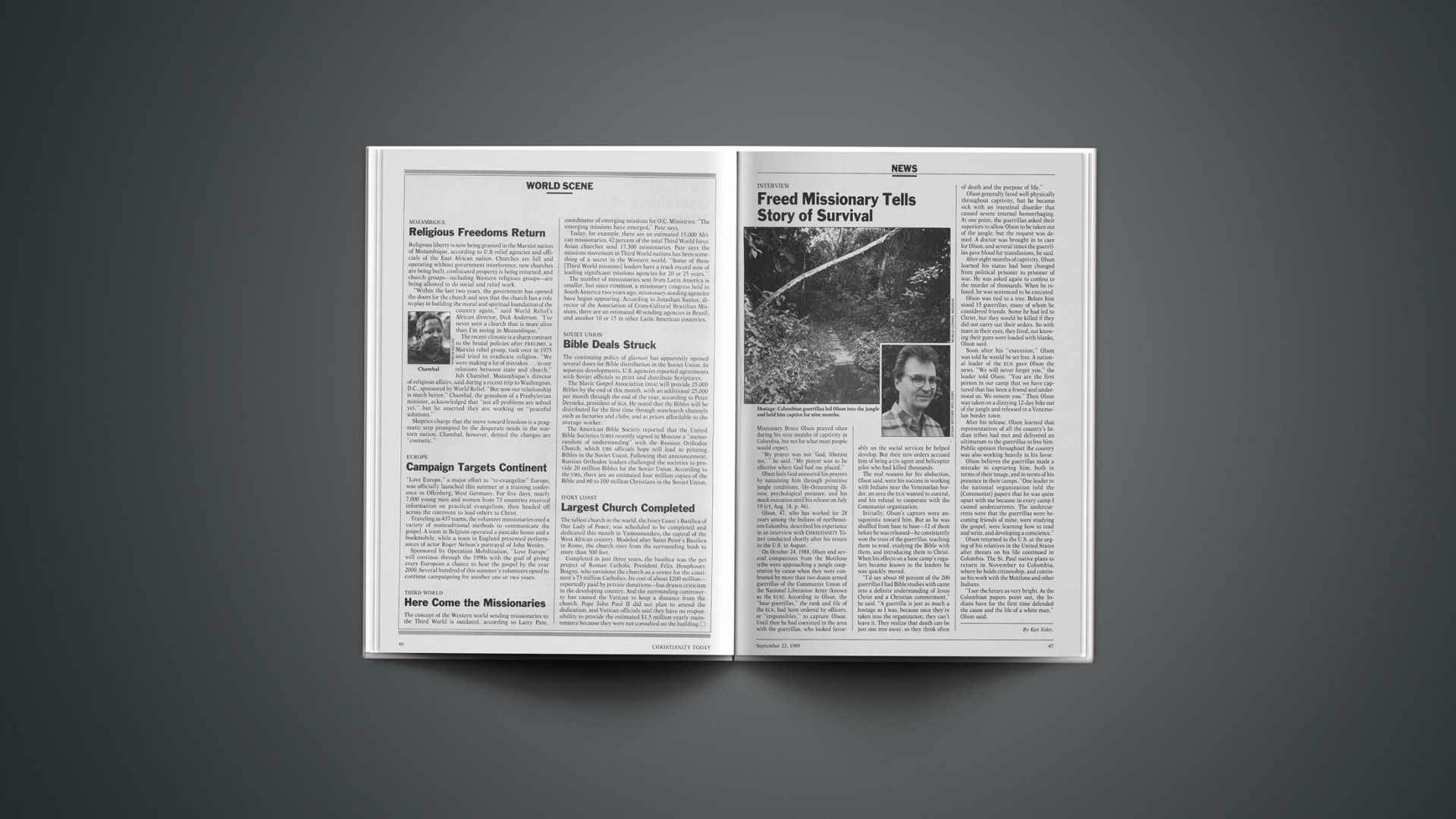A Christian statement that upholds the necessity of Jewish evangelism has received strong criticism from the Jewish community. Calling it a “blueprint for spiritual genocide,” A. James Rudin, national interreligious affairs director of the American Jewish Committee, and other Jewish leaders condemned “The Willowbank Declaration on the Christian Gospel and the Jewish People” (CT, June 16, 1989, p. 56) as furthering “the ancient Christian ‘teaching of contempt’ for Jews and Judaism.”
While some Christian leaders attribute reaction to the perceived offensiveness of Christ’s claims, others believe flaws in the statement have contributed to its condemnation.
Released last April, the Willowbank Declaration was developed by an international group of 15 Christian scholars, meeting under the sponsorship of World Evangelical Fellowship in Willowbank, Bermuda.
The statement affirmed that it is “unchristian, unloving, and discriminatory to propose a moratorium on the evangelizing of any part of the human race, and that failure to preach the gospel to the Jewish people would be a form of anti-Semitism.”
In addition, it denied that “deception is involved by Jewish Christians representing themselves as ‘Messianic’ or ‘completed’ or ‘fulfilled’ Jews.” The statement also distinguished between sharing the “saving knowledge of Christ” and Jewish-Christian dialogue that aims only at mutual understanding.
According to Vernon Grounds, chairman of the Willowbank meeting, the declaration was intended to alert Protestants to the trend within some denominations to downplay the necessity of sharing the gospel with Jewish people.
“Several major denominations are taking the position that … the [Jewish people’s] continuing covenant with God precludes them from Christian witness,” Grounds said.
Rabbi Yechiel Eckstein of the Holy Land Fellowship of Christians and Jews in Chicago said that the statement undermines Jewish beliefs, denies the value of Judaism, and calls for its worldwide elimination.
“I’m not calling evangelical Christians to cease to engage in mission to Jews,” said Eckstein. “The problem is how to sensitively perform that mission and then to leave it up to God and the Holy Spirit to act upon those individuals.… The basis of all mission—unconditional love—is not reflected in the document.”
Eckstein said the declaration “will have the reverse effect of what it intended, distancing Jews from Christ, from Christians, and from Christianity.”
False Impression
Most Christians praised the Willowbank statement’s stand against anti-Semitism, its support of Hebrew Christians, and its faithfulness to New Testament teaching. For some, objections to the document stemmed from the gospel’s inherent offensiveness to Jewish ears. “My people have seen the declaration of the gospel as a guise for anti-Semitism or hatred,” said Sam Nadler, executive director of Chosen People Ministries.
Some evangelical leaders, however, approached the document with caution and concern.
Alan Johnson of Wheaton College, another active participant in Jewish-Christian dialogues, said he believes some of the offensiveness to Jews could have been alleviated. “The one-sided focus on the evangelization of Jews conveys the false impression that evangelicals consider them objects of conversion only,” he said.
“Evangelicals will have to continue to differ with other Christians who propound the two-covenant view, as well as with Jewish people who have adopted it,” he said.
The two-covenant theory holds that Jews, because of God’s unique relationship with them since Abraham, need not believe in Christ for salvation. “It can’t be squared with New Testament teaching,” Johnson said.
He suggested that a separate section be added to the Willowbank document, addressed to the Jewish community, pointing out that Christian love, respect, and involvement in Jewish issues will continue if they choose not to follow Christ. He strongly disagrees with the statement’s dismissal of Jewish-Christian dialogue, which he said offers “many opportunities to share our Christian faith.… But we also need more direct approaches to Jewish people, as well.”
By Pamela Pearson Wong.










